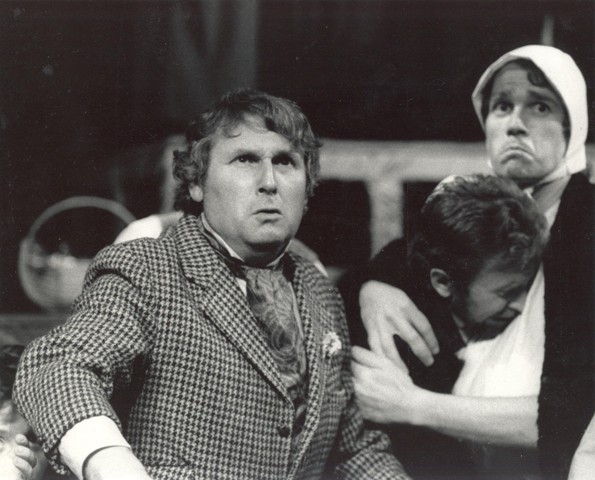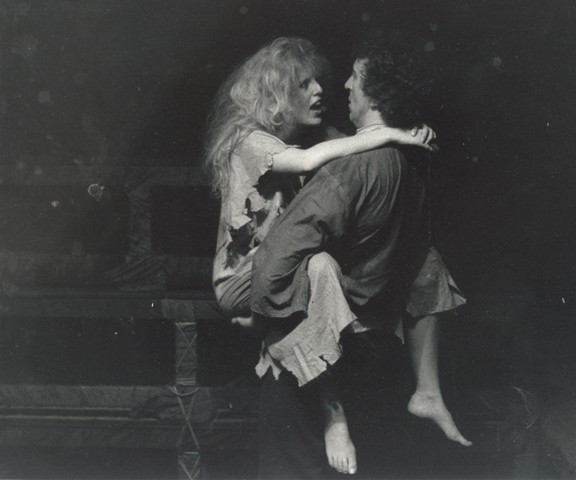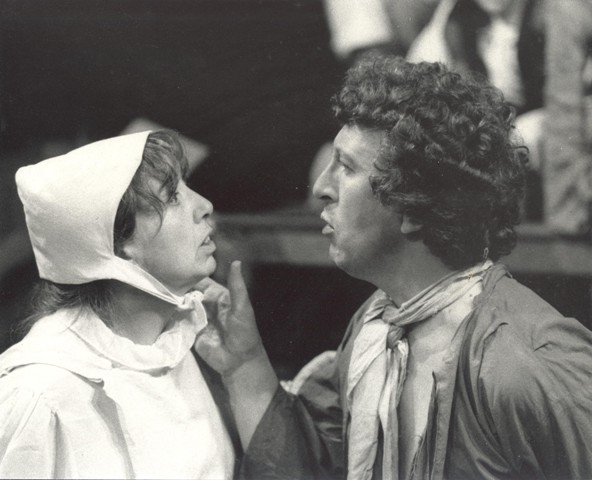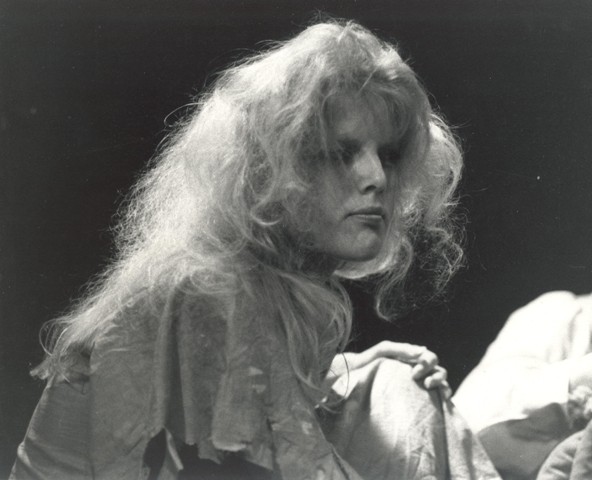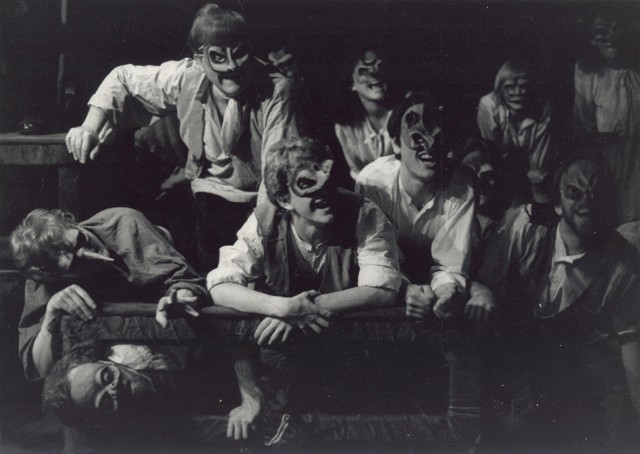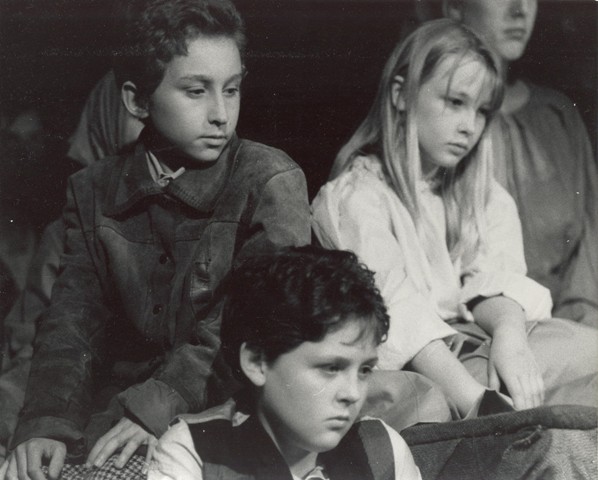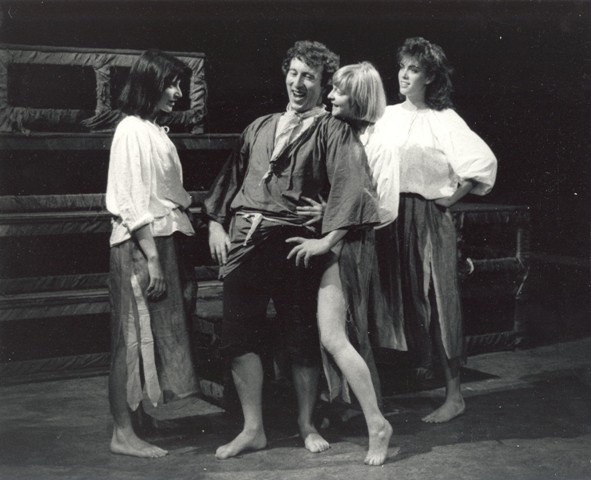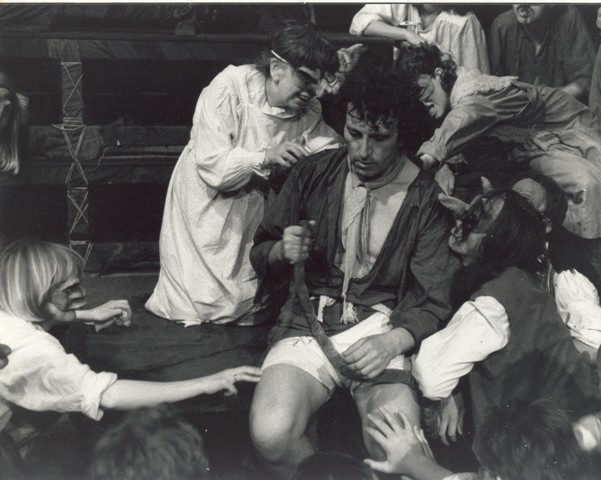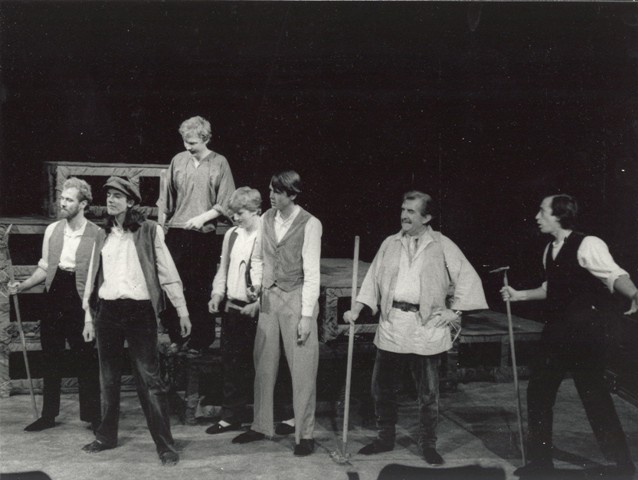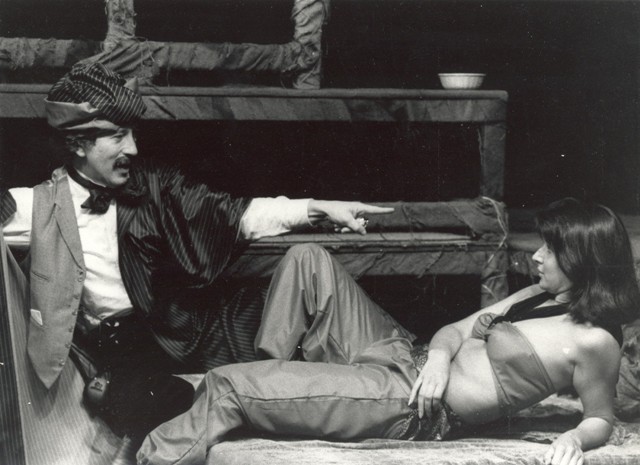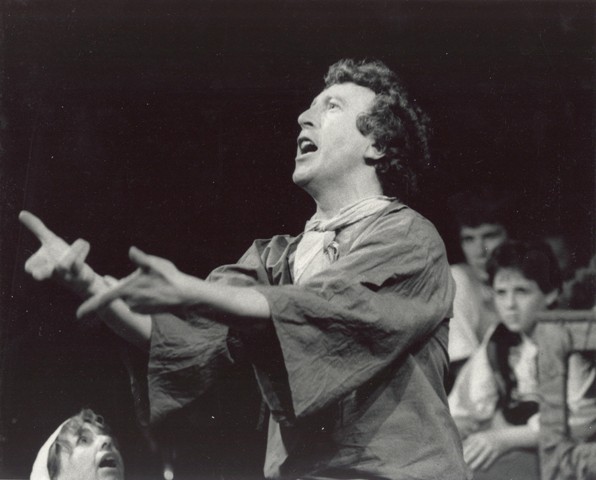Peer Gynt
Written by Henrik Ibsen (translated by Michael Meyer)
Thursday 4th July to Saturday 6th July and Tuesday 9th July to Saturday 13th July 1985
Directed by David Penrose
Peer Gynt is a dreamer, a liar and a serial womaniser. Cast out from his home town, he embarks on a thrilling and astonishing adventure in search of fame and fortune in this epic dramatic fantasy that span's more than 50 years of the hero's life. Ibsen takes his audience on an imaginary journey from the fjords of Norway, to the folklore world of the trolls, to an Arab encampment in the North African desert, through Cairo's lunatic asylum and with the hero into the gates of death itself.
previous
production
next
production
Henrik Ibsen (1828 - 1906)
Ibsen was a major 19th-century Norwegian playwright, theatre director, and poet. He is often referred to as the godfather of modern drama and is one of the founders of Modernism in the theatre. His plays were considered scandalous to many of his era, when Victorian values of family life and propriety largely held sway in Europe. Ibsen's work examined the realities that lay behind many facades, possessing a revelatory nature that was disquieting to many contemporaries. It utilised a critical eye and free enquiry into the conditions of life and issues of morality.
Ibsen was born to relatively well-off family and became an apprentice pharmacist at the age of 15. He fathered an illegitimate son at the age of 18 - (whom he never met) and later left for Christiania (Oslo) to try to attend university. He failed the entrance exams and started to concentrate on his writing. His first play 'Catiline', was published under the pseudonym Brynjolf Bjarme when he was only 20, but it was not performed. In 1858 he became the creative director of the Christiania Theatre and married Suzannah Thoresen the same year. She gave birth to their only child, a son, Sigurd in 1859. Disenchanted with the poverty and lack of recognition of his life in Norway, in 1864 he went to live in Italy.
His next play, 'Brand' written in 1865, was staged to critical and financial success, as was the following play, 'Peer Gynt' to which Edvard Grieg famously composed incidental music and songs. Ibsen moved from Italy to Germany in 1868, where he spent years writing the play he regarded as his main work, 'Emperor and Galilean' although very few shared his opinion about this play. Ibsen published A Doll's House in 1879 and Ghosts in 1881; both scathing commentaries on Victorian morality. 'The Wild Duck' written in 1884 is by many considered Ibsen's finest work, and it is certainly the most complex. In later plays such as 'Hedda Gabler' and 'The Master Builder', Ibsen explored psychological conflicts. These plays are particularly interesting because of their hard-edged, objective look at interpersonal confrontation.
Ibsen can be credited with completely rewriting the rules of drama with a realism which was to be adopted by Chekhov and others and which we see in the theatre to this day. He returned to Norway in 1891 and died in Christiania (now Oslo) after a series of strokes in 1906.
TranslatorMichael Meyer
Michael Meyer (1921 - 2000)
Michael Meyer is recognised internationally as the principal English-language authority on Ibsen. He was born in London into a merchant family of Jewish origin, and studied English at Christ Church College, Oxford. His first translation of a Swedish book was the novel 'The Long Ships' by Frans G. Bengtsson. His work appeared in the New York Review of Books. A playwright himself, his translations of many Ibsen's plays (as well as Strindberg's) are universally acclaimed. While he wrote acclaimed biographies of both these playwrights; it was the volume on Ibsen which is generally regarded as definitive - it won the 1971 Whitbread Award for Biography. His autobiography 'Not Prince Hamlet' was published in 1989.
top of page
In 1864 at the age of 39, Henrik Ibsen, then a poor and unsuccessful playwright, left Norway in disgust at its narrow-minded provincialism. He went to Italy, and found it was "...like being released from darkness into light", and there wrote the two dramatic poems 'Brand' and 'Peer Gynt', neither of them intended for the stage. Instead, Ibsen envisioned his work as a poetic fantasy to be read. However, Peer Gynt quickly became recognised as a masterwork of Scandinavian literature, and in 1876, Ibsen adapted his work for the stage. Adapting the lengthy fantasy poem into a play presented some challenges, with Ibsen ultimately forced to cut the work by about one third. Instead of simply removing a large section, such as the adventures that occur in Act IV, Ibsen cut almost every scene by a few lines. The first production was in that year in Christiania (now Oslo) with music by Edvard Grieg.
As a play, Peer Gynt consists almost entirely as a vehicle for Peer's adventures. He is a character who runs from commitment, and who is completely selfish, having little concern for the sacrifices that others are forced to make in accommodating him. Ibsen's use of satire and a self-centred protagonist suggests social implications for nineteenth-century society, a topic that always interested Ibsen.
top of page
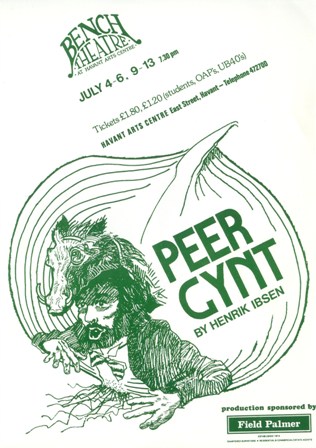
This play was staged at Havant Arts Centre, East Street Havant - Bench Theatre's home since 1977. It was adapted from the translation by Michael Meyer and included members of Dynamo Youth Theatre to supplement the cast.
| Troll Child | Suzanne Berry |
| Master Cook | John Bohun |
| Troll Child | Alex Booth |
| Hussein | David Brown |
| Wedding Guest | Jim Cameron |
| Farm Girl | Gina Cameron |
| Helga | Suzanna Carter |
| Peer Gynt | Peter Corrigan |
| Wedding Guest | Stephen Evans |
| Mr Cotton | Richard Fieldhouse |
| Troll Child | Gaynor Grubb |
| Solveig's mother | Jane Hart |
| Solveig's father | Stuart Hartley |
| Fugitive Boy | Saul Hewish |
| Wedding Guest | Cerys Hogg |
| Mads Moens | Peter Holding |
| Old Woman | Russell Lockwood |
| Aslak | Sam Merry |
| The Boyg | Ray Osborne |
| Ingrid | Jude Salmon |
| Bridegroom's father | John Scadding |
| Aase | Janet Simpson |
| Slave | Richard Stacey |
| Troll Child | Ian Tomkinson |
| Solveig | Debby Valentine |
| Bridegroom's mother | John Valentine |
| Old woman | Pete Woodward |
| Farm girl | Jane Yeomans |
Crew
| Director | David Penrose |
| Stage Manager | Tony Kellaway |
| Music Composed by | Ben Payne
Paul Mizen
Cerys Hogg |
| Piano and Violin | Paul Mizen |
| Flute | Emma Marsh
Lucy Jarman |
| Masks made by | Alan Eagle |
| Choreography | Val Briginshaw |
| Lighting | Jacquie Penrose |
| Design | David Penrose |
| Props | Tony Kellaway
Chris Shaw
Trevor Magee |
top of page
The NewsJanice Macfarlane
Ibsen's epic is brought to life
Peel away the layers of a man like an onion and what do you find in the middle? The answer lies at the end of 'Peer Gynt', Ibsen's epic drama about a man fuelled by fantasy who lives life to the full, good and bad, and who finds his spiritual home in the love of the simple maid he abandoned at the start. His life's journey takes us through Norwegian fjords, the Arabian desert, a shipwreck, a madhouse, and the Hall of the Mountain King. Havant's Bench Theatre has been ambitious enough to stage such an epic, with a cast of 28 playing up to four roles each, and specially composed music to dispel the cosy familiarity of Grieg.
It took almost the whole of the first half for the company to get into their stride - up until the death of Peer's mother Aase, a part tailor-made for Janet Simpson. Later, when the ebullient hero has literally embarked upon his travels, the play has much more humour - and this heightened the poignancy of its serious moments. One might say that in the central role of Peer, Peter Corrigan was peerless (if it were not too awful a pun). No visible blood, but plenty of sweat and tears go into his performance. There cannot be many actors capable of making this complex character credible at every level - from warm humanity to foolhardiness, recklessness and ruthlessness - but he does.
For the rest, it was an exemplary exercise in ensemble playing, with everyone working for the good of the whole. All adding to the atmosphere with noise, sound effects, scene changing, props management, and even one complete make-up on stage - a daring idea. As overseer and director, David Penrose must take credit for instilling impressive attention to detail. Peer Gynt is being presented again from tomorrow and from Tuesday to Saturday next week at 7.30 p.m. in Havant Arts Centre.
The News, 5th July 1985
top of page
Production Photographs

